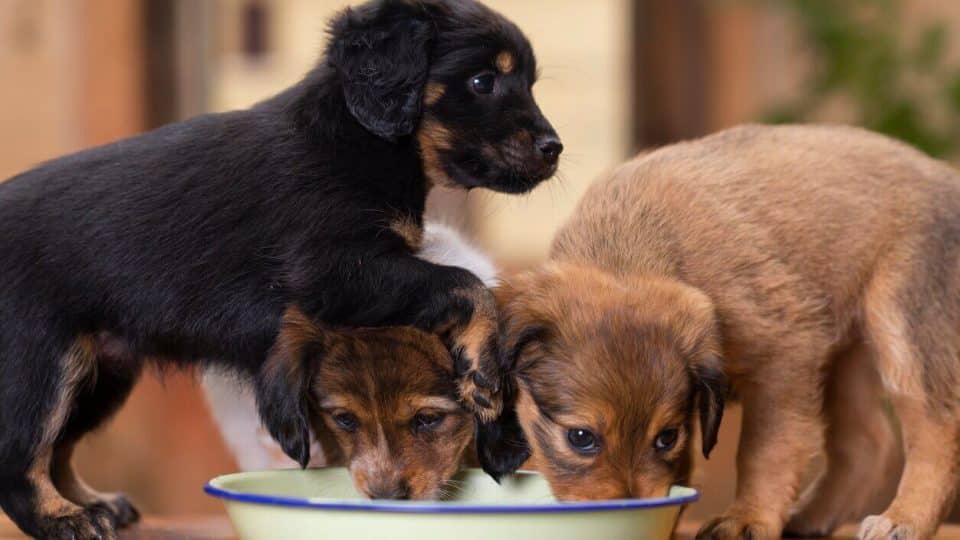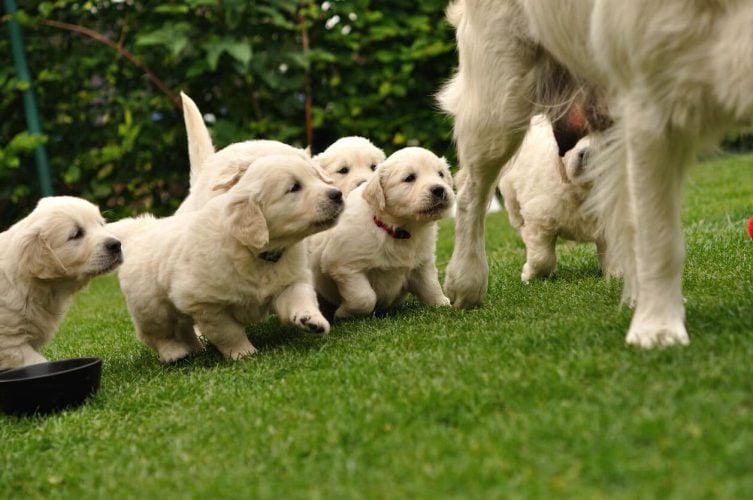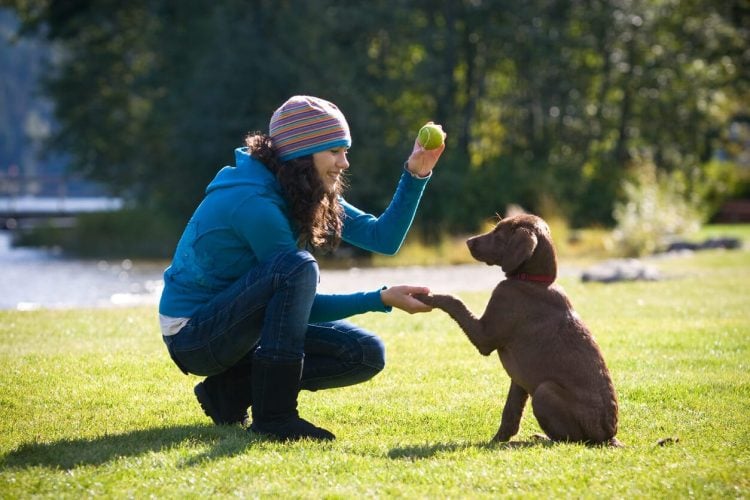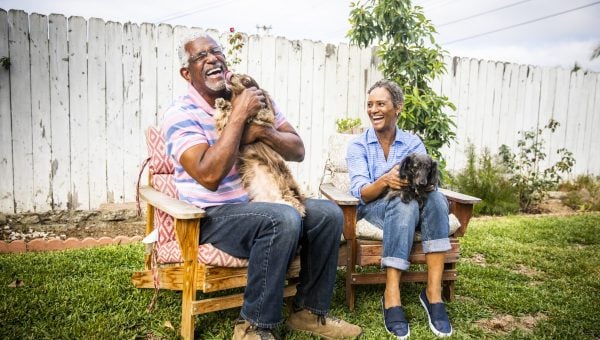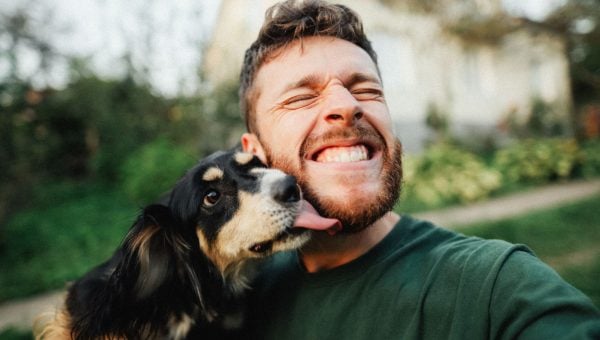Many puppies are separated from their littermates early in life, and they likely won’t remember their siblings after about two years.
If your puppy has just left a litter full of playmates, you may wonder how this separation will affect them emotionally. But there’s no need to worry, since your dog’s emotions and memories don’t work in quite the same way as yours.
As a pet parent, all you need to do is provide your puppy with a safe, warm, and loving home. As they bond with you, they’ll (painlessly) let go of the early attachments they formed with their littermates.
Dogs can bond equally with humans and other dogs, since they tend to form relationships based on attributes rather than species. Below, we’ll explain this in more depth as we take a deep dive into canine attachment.
How Long Do Puppies Remember Their Siblings?
You can certainly ask your puppy if they remember the siblings that kept them company in their first weeks of life, but of course, they won’t be able to answer! Scientists, however, have explored whether dogs remember their siblings and mother after a few years of separation.
One study used scent-based tests to determine whether dogs recognised their mother and siblings two years after leaving the litter by the age of 12 weeks. They found that by the age of two, dogs could only recognise a sibling they lived with—not any of their other siblings.
But dogs could recognise their mothers after two years of separation, and the mothers also recognised their puppies.
“It makes sense that dogs have a strong recognition of their mother, as they are an altricial species. This means that the young are underdeveloped at birth, but with the aid of their parents, they mature,” explains Britt Rosendahl, dog behaviourist and training specialist at Woodgreen Pets Charity.
“Survival mainly depends on the mother, so recognition of the mother is crucial. Altricial animals are wired this way, which could be a reason why they are more likely to recognise their mother compared to their siblings,” she says.
Research on kin recognition also suggests that dogs use alternative methods to tell their mother and siblings apart, with both experiences and environment playing a role.
The importance of scent
“A dog’s main way of navigating and gathering information is through scent. So they remember other dogs and people through smell more than sight,” Rosendahl says.
She adds that research into canine memory and cognition is difficult, due to the lack of spoken language to measure and record their experiences. However, plenty of evidence shows that dogs will spend more time exploring familiar scents, supporting the theory of scent recognition.
One study, for instance, found that dogs exposed to a vanilla scent during a reward-based task could better re-perform the task 24 hours later.
Another smaller study also supports the importance of scent in recognising dog and human family members. Eight dogs separated from their mother for varying lengths of time—from several months to several years—still reacted more strongly to her scent than the scent of another female dog.
In the same study, researchers also considered nine dogs reared by humans from birth who were separated from their owners for varying lengths of time—from 11 months to just over three years. After this time, the dogs spent longer reacting to their owner’s scent than the scent of a same-sex human who lived with a dog of the same breed and gender.
Ultimately, though, even well-designed studies can only use behaviour to infer what goes on inside a dog’s mind, explains Jennifer Malawey, certified dog trainer and behaviour consultant.
“We can’t yet say with any specificity how dogs’ memory works,” Malawey says.
When do puppies first recognise their siblings and mother?
A dog’s sense of recognition doesn’t kick in immediately after birth. For starters, puppies don’t open their eyes until they’re at least 10-14 days old.
Puppies generally begin picking out fellow pack members once they reach four to five weeks of age.
Do Dogs Miss Their Siblings?
Experts recommend puppies stay with their litter until eight to 12 weeks of age. Separation before this can lead to issues later in life, including aggression, possessiveness, and anxiety. Some dogs may even have nightmares.
Transitioning from the litter to a new home will likely cause your puppy some stress, no matter when it happens.
“Leaving the safety and familiarity of their mother and littermates can be a daunting experience,” Rosendahl says. But this isn’t necessarily because they miss their siblings. A different environment just means your dog has to get used to new smells, sights, routines, people, and sounds, she explains.
That said, dogs can experience emotions ranging from fear and grief to excitement and happiness. And of course, as a pet parent, you might consider your puppy part of your family and attribute human-like emotions, such as “missing” and “longing,” to them, according to Rosendahl.
“But it’s best to avoid humanising dog behaviour, as seeing them through a human perspective can make it more challenging to truly understand them,” Rosendahl says.
Puppy Emotional Development Over The First Months Of Life
Dogs typically don’t spend much time with their littermates. Even so, this period provides plenty of time for puppies to learn essential communication and socialisation skills. These skills allow them to interact and bond with humans, not to mention other dogs.
Your puppy will also learn many of the noises, sounds, and smells they’ll encounter in everyday life, Rosendahl says. By the time most puppies leave the litter, she adds, they’ve also developed:
- important motor skills
- some resilience to new or stressful events
- bite inhibition, which means they can control the strength of their bite
- problem-solving abilities
- operant learning, which means they change their behaviour after experiencing unwanted consequences
Ultimately, says Rosendahl, the first few months of a dog’s life are crucial.
“Exposure to different environments, and the quality of the dog’s experiences, will greatly affect their behaviour and coping skills long after the ‘sensitive socialisation’ period has passed,” she emphasises.
How Dogs Form Relationships
Dogs base their relationships (both with people and other dogs) on individual traits.
For instance, one study found dogs’ relationships are founded on three components:
- reference, or how the partner can provide information
- affiliation
- stress, or whether the partner increases or helps relieve stress
This makes it possible for dogs to start building bonds with their new owner after they leave the litter. However, for puppies, timing plays an important role.
By the time a dog is eight to 10 weeks old, Malawey says, they’ve started to develop some independence and explore relationships outside of their mum and siblings. Separation from the litter occurs during a dog’s socialisation period, which falls between three and 16 weeks of age. During this time, their brains are most open to new experiences, including bonding with new human caretakers, Malawey says.
Put these developmental aspects together, Malawey continues, and puppies in that age range usually have no difficulty forming new bonds, as long as the experiences with their new family are safe, fun, and meet their needs.
How To Build A Bond With Your New Puppy
To develop a strong relationship with your dog, it’s essential to help them feel safe and secure. You’ll also want to make sure to meet all of their physical, mental, emotional, and social needs, Malawey says.
As a general rule, dogs who have close relationships with their owners experience less stress—and engaging in positive experiences with your puppy can help them firmly attach to you.
“Every puppy is different and will adjust to their new environment at their own pace. Some puppies may settle in quickly, while others may take a few weeks to adjust. During this transition period, let them decompress in their own time,” Rosendahl says.
If you’re bringing home a puppy that’s just left their litter, Malawey recommends taking a few steps to help them feel comfortable in the new environment:
- Prepare your home with gates, crates, and pens
- Create a ‘zen zone’ (often a cosy crate), where your puppy can rest quietly when they need a break
- Establish routines for walks, meals, and playtime that make life predictable
- Set aside time for puppy socialisation if they’re younger than 20 weeks old
- Avoid forcing them into any interaction where they seem uncomfortable, like meeting someone new
- Choose training methods that involve positive reinforcement, not punishment or force
- Sign up for responsibly-run puppy socials
- Learn the basics of canine body language so you can better understand their cues
Recognising and supporting your puppy’s needs can help you build a deep and loving bond that lasts for life.
